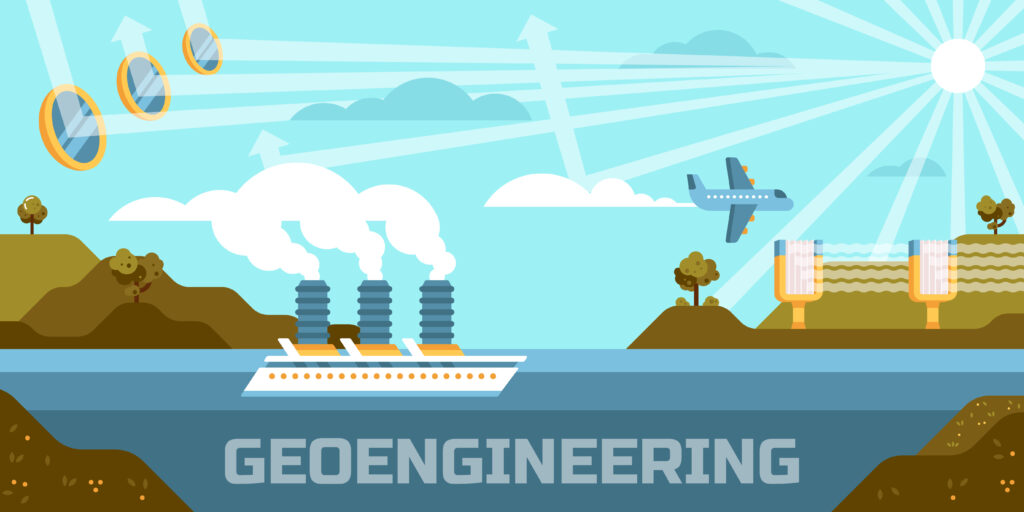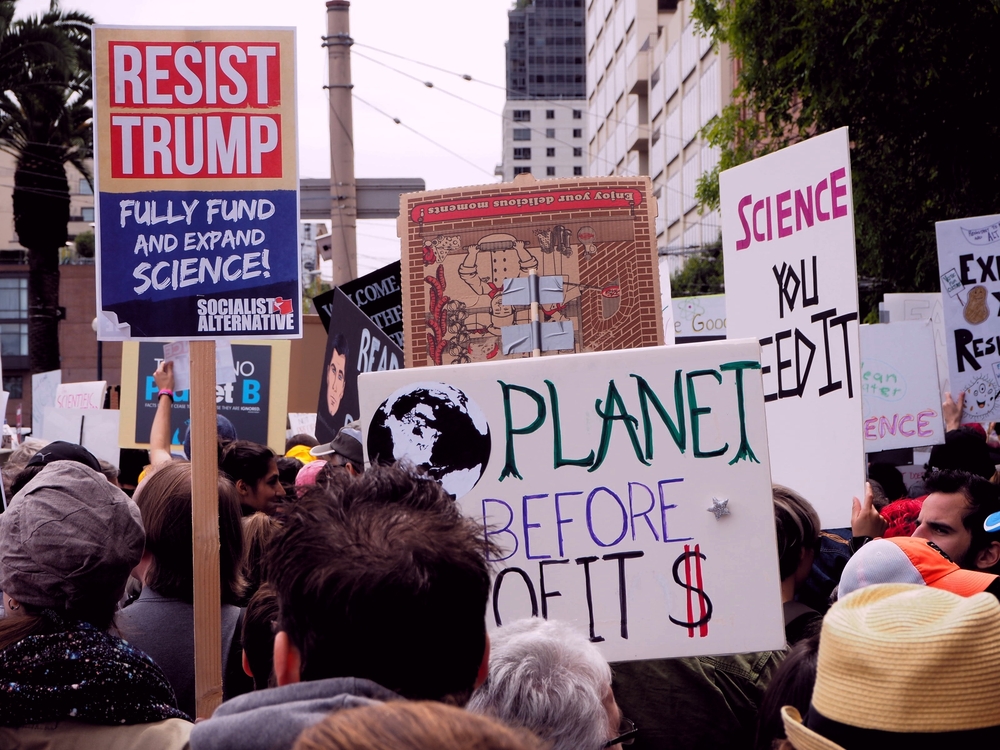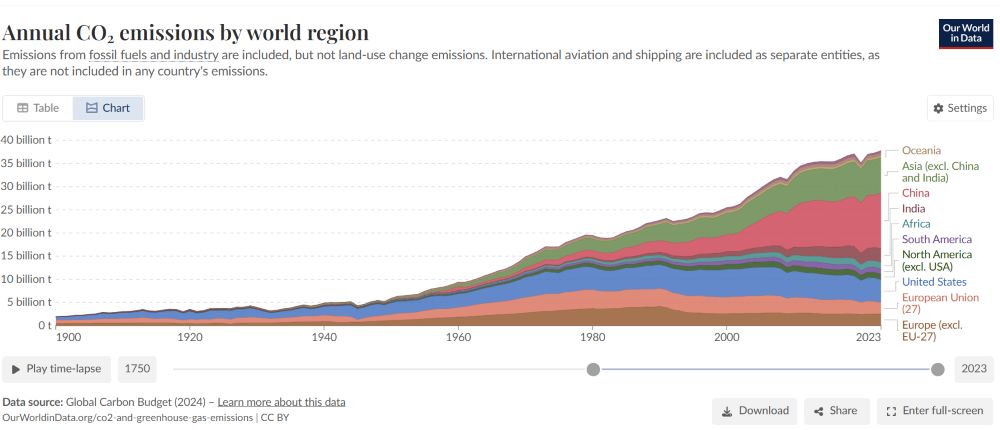This week we learned about another shocking impact of climate change. As the journal Nature reports, the melting of polar ice has slowed Earth’s rotation. We can adjust our timekeeping, but stopping the rotational change is likely to be impossible. However, there are many other proposed solutions to the impacts of climate change, including geoengineering.
The University of Oxford in the UK has a clear answer to the question, What Is Geoengineering?. “Geoengineering is the deliberate large-scale intervention in the Earth’s natural systems to counteract climate change,” Oxford explains.
How Does Geoengineering Work?
There are numerous intervention techniques under consideration, including these solar options described by Oxford:
- “Albedo enhancement. Increasing the reflectiveness of clouds or the land surface so that more of the Sun’s heat is reflected back into space.
- Space reflectors. Blocking a small proportion of sunlight before it reaches the Earth.
- Stratospheric aerosols. Introducing small, reflective particles into the upper atmosphere to reflect some sunlight before it reaches the surface of the Earth.”
Removing greenhouse gases from the atmosphere is another mechanism that scientists have suggested. These techniques include a massive addition of trees throughout the world, locking the carbon in charred biomass buried in the soil, or “advance weathering.” This means “exposing large quantities of minerals that will react with carbon dioxide in the atmosphere and storing the resulting compound in the ocean or soil.” But to be successful, the entire world must commit to such techniques globally.
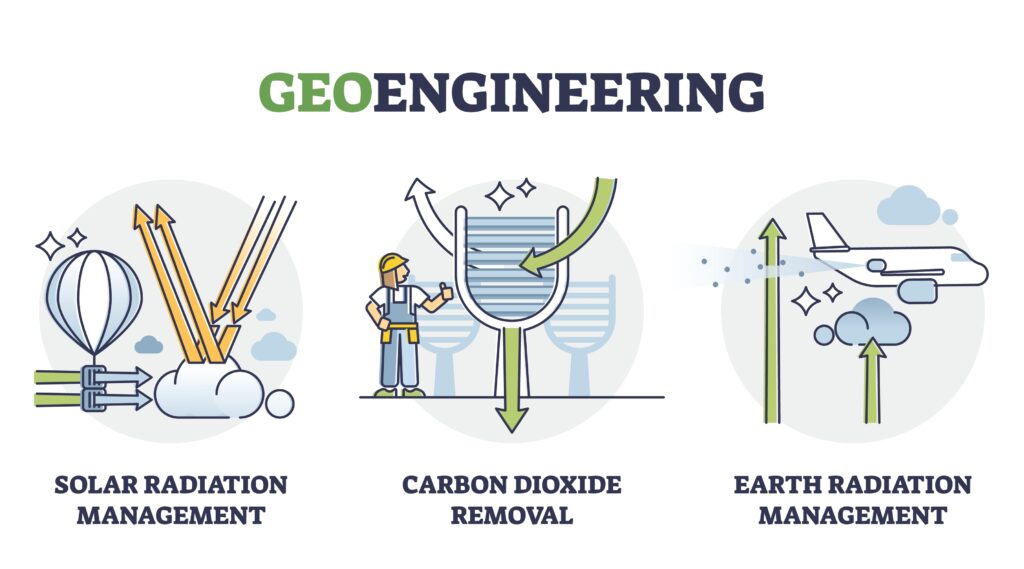
Why Are People Against Geoengineering?
There are red flags flying over geoengineering solutions to climate change. From Inside Climate News’ Today’s Climate newsletter, we learn that Geoengineering Faces a Wave of Backlash Over Regulatory Gaps and Unknown Risks. The article explains that some scientists are trying to create ways to replicate the atmospheric cooling that results from volcanic ash droplets that reflect the sun’s heat away from earth. This includes a project called SCoPEx that Harvard University ended recently, after steady resistance from environmental activists. David W. Keith, the professor who led the project, believes we need to allow such research. “This experiment just became the focus of that conversation and got blown out of proportion.” He has since left Harvard for the University of Chicago.
Today’s Climate continues, “a number of other universities and companies are exploring ways to alter the environment to fight and adapt to climate change, from sprinkling iron across the ocean to absorb more carbon emissions to releasing aerosols in clouds to trigger more rain during droughts.” Environmental advocates express concern that there is no regulatory framework for such experimentation. Reporter Bob Berwyn told Inside Climate News, “more than 100 civil society groups in 45 countries have issued a manifesto against geoengineering.”
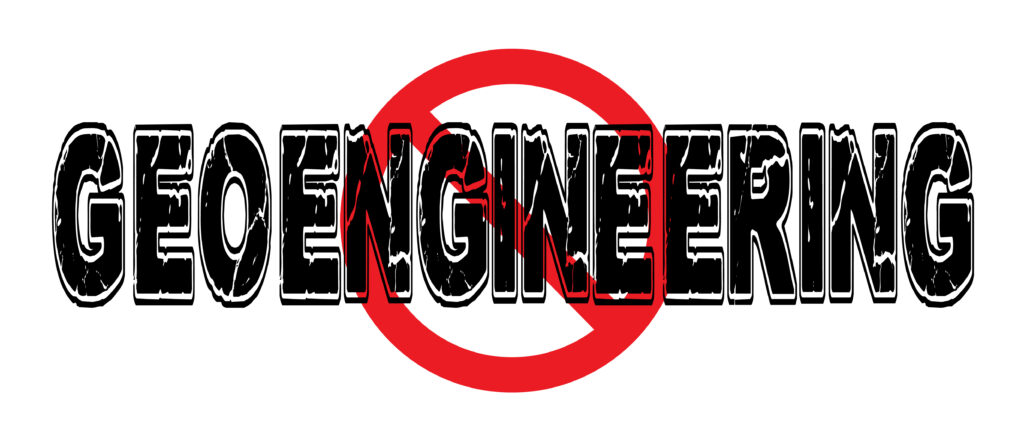
The Need for Stronger Regulation of Geoengineering Research
Meanwhile, E&E News (Energy & Environment) by Politico reported this week, “NOAA gets dire warning about solar geoengineering.” Much of the article is focused on concerns raised by David Bookbinder, a climate attorney who previously served as Sierra Club’s chief climate counsel.
The article also cites international developments. “A proposal to study solar geoengineering was withdrawn from consideration at a U.N. Environment Assembly earlier this year after nations failed to reach agreement over how to approach the contentious issue.”
Bookbinder recently petitioned the National Oceanic and Atmospheric Administration (NOAA) for stricter regulation of solar geoengineering, along with Tracy Hester of the University of Houston’s Environment, Energy, and Natural Resource Center; Shuchi Talati, founder of the Alliance for Just Deliberation on Solar Geoengineering, and others. E&E News has previously reported that many of those concerned want to see “guidelines for solar geoengineering research be established by a federal scientific coordinating body like the U.S. Global Change Research Program.”

